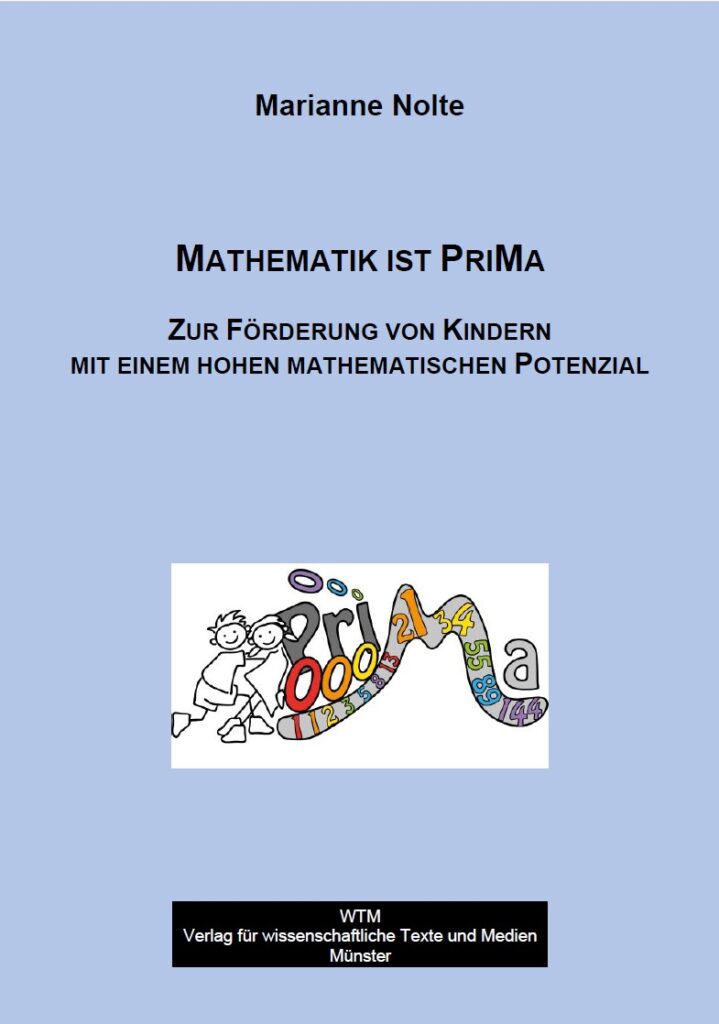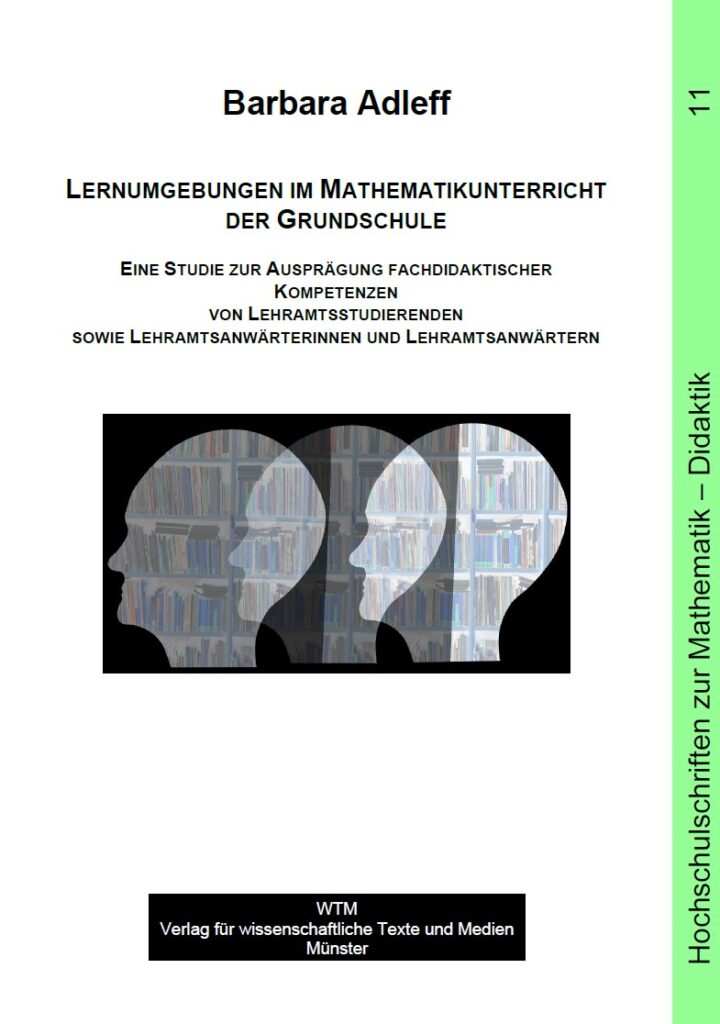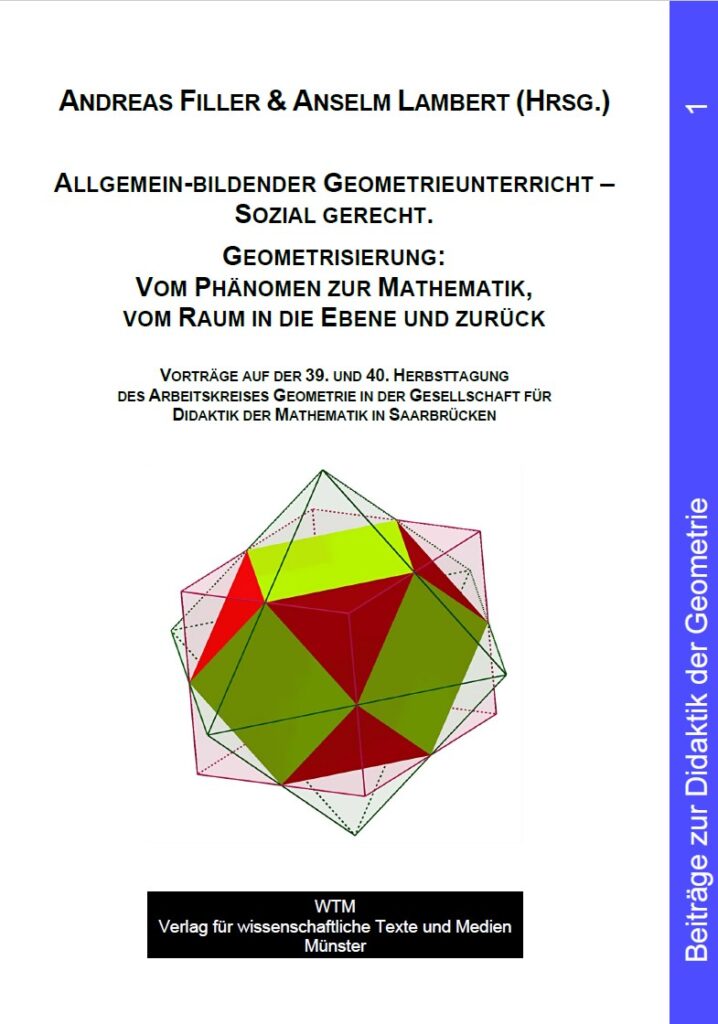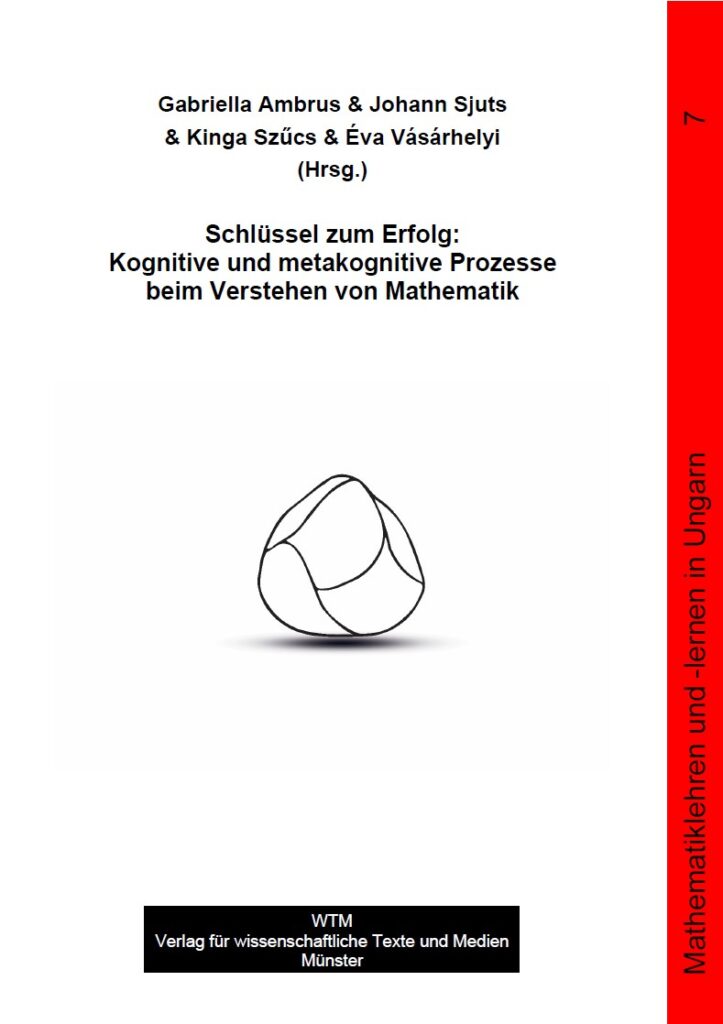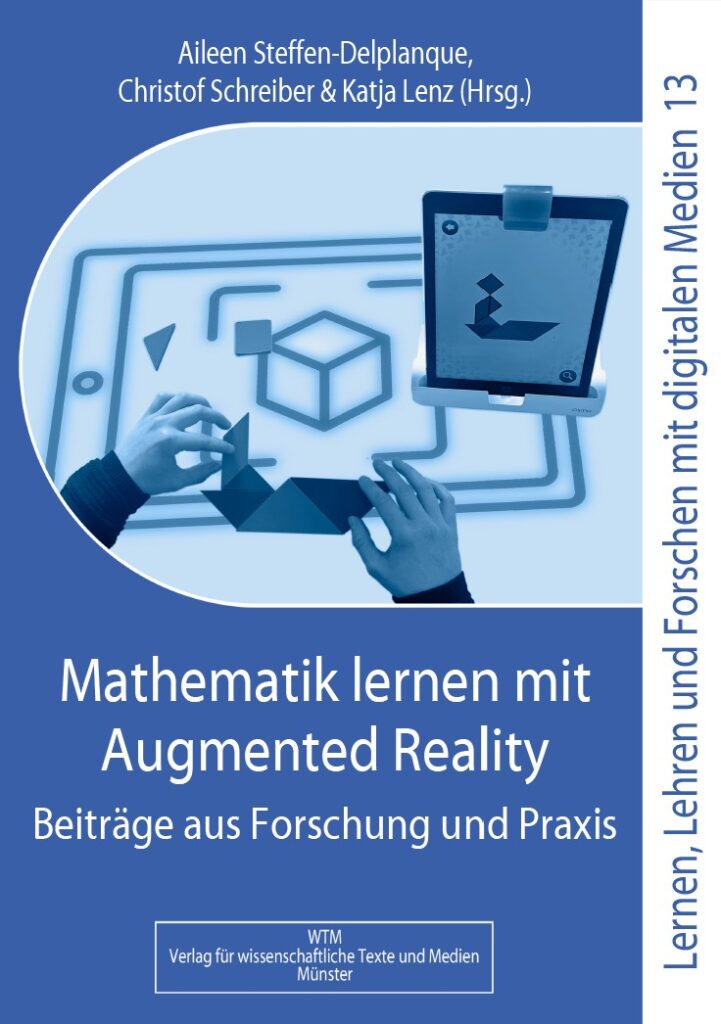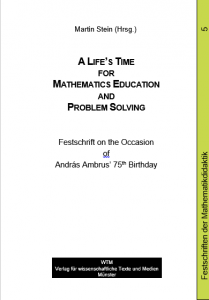 Festschrift on the Occasion of András Ambrus’ 75th Birthday
Festschrift on the Occasion of András Ambrus’ 75th Birthday
Münster: WTM-Verlag 2017. Ca. 480 Seiten, DIN A5.
978-3-95987-063-4 print 43,90 €
978-3-95987-064-1 E-Book 39,90 €
https://doi.org/10.37626/GA9783959870641.0
Für Bestellungen bei edition-buchshop hier klicken
Bestellungen direkt an kontakt@wtm-verlag.de
After an introduction by Benjamin Rott, this Festschrift on the occasion of András Ambrus’ 75th birthday comprises articles by the following authors:
- Krisztina Barczi-Veres
- Laurinda Brown
- Regina Bruder
- Olive Chapman
- Marianna Ciosek
- Bronislaw Czarnocha
- Lothar Flade & Manfred Pruzina
- Torsten Fritzlar, Maria Kötters & Karin Richter
- Gunnar Gjone
- Stefan Götz
- Günter Graumann
- Olga Graumann
- Ján Gunčaga & Péter Körtesi
- Lenni Haapasalo
- Frank Heinrich
- Eszter Kónya & Gyöngyi Szanyi
- Ana Kuzle
- Anu Laine & Maija Ahtee
- Leong Yew Hoong, Romina Ann Yap, Toh Tin Lam, Tay Eng Guan, Quek Khiok Seng, Toh Pee Choon, Teo Kok Ming & Ho Weng Kin
- Shuk-kwan S. Leung
- Nicolina A. Malara
- John Mason
- Jarmila Novotná & Hana Moraová
- Antoni Pardała
- Erkki Pehkonen
- Klára Pintér
- Benjamin Rott
- Alan H. Schoenfeld
- Fritz Schweiger
- Johann Sjuts
- Jorge Soto-Andrade
- Gordana Stankov
- Martin Stein
- John Sweller
- David Tall, Nic Tall & Simon Tall
- Stefan Turnau
- Shlomo Vinner
Barczi-Veres, Krisztina: Solving Problems – Together. pp 11 – 21
https://doi.org/10.37626/GA9783959870641.0.01
Brown, Laurinda: Long Conversations: Budapest/Bristol Mathematics Student Teacher Links. pp 22 – 37
https://doi.org/10.37626/GA9783959870641.0.02
Bruder, Regina: The „Brain Teaser Path“ as an Approach to Problem-Solving. pp 38 – 44
https://doi.org/10.37626/GA9783959870641.0.03
Chapman, Olive: Mathematics Teachers´ Ways of Supporting Students´ Learning of Problem Solving. pp 45 – 69
https://doi.org/10.37626/GA9783959870641.0.04
Ciosek, Marianna: On Useful Strategies for Solving Open Mathematical Problems. pp 70 – 76
https://doi.org/10.37626/GA9783959870641.0.05
Czarnocha, Bronislaw: Mathematics Teaching-Research, Paulo Freire, and Mathematics for Social Justice. pp 77 – 90
https://doi.org/10.37626/GA9783959870641.0.06
Flade, Lothar; Pruzina, Manfred: Zur Kompetenz „Mathematisch argumentieren“ – Ein Blick auf Anspruch und Wirklichkeit im Wandel der Zeit. pp 91 – 106
https://doi.org/10.37626/GA9783959870641.0.07
Fritzlar, Torsten; Kötters, Maria; Richter, Karin: Exploratory and Creative Activities in Ethnomathematical Learning Environments. pp 107 – 126
https://doi.org/10.37626/GA9783959870641.0.08
Gjone, Gunnar: Mathematical Education Research. The Developments Since the 1970s- My Story. pp 127 – 137
https://doi.org/10.37626/GA9783959870641.0.09
Götz, Stefan: On the Track oft he KIEPERT-Hyperbola. pp 138 – 151
https://doi.org/10.37626/GA9783959870641.0.10
Graumann, Günter: Problem Orientation and Problem Fields for Geometry Teaching. pp 152 – 167
https://doi.org/10.37626/GA9783959870641.0.11
Graumann, Olga: Diversity as an Educational Challenge. Symmetry Teaching in a Heterogeneous Class of Primary School. pp 168 – 177
https://doi.org/10.37626/GA9783959870641.0.12
Guncaga, Ján; Körtesi, Péter: Using of History of Mathematics Education With GeoGebra. pp 178 – 186
https://doi.org/10.37626/GA9783959870641.0.13
Haapasalo, Lenni: CAMEL and HORSE – Two Metaphors of Mathematics Education. pp 187 – 199
https://doi.org/10.37626/GA9783959870641.0.14
Heinrich, Frank: Why Content Matters in Problem Solving: Strategies among Mathematics Teacher Trainees. pp 200 – 209
https://doi.org/10.37626/GA9783959870641.0.15
Kónya, Eszter; Szanyi, Gyöngyi: A Classroom Teaching Experiment on the Preparation of the Function Concept. pp 210 – 219
https://doi.org/10.37626/GA9783959870641.0.16
Kuzle, Ana: Teaching Problem Solving from Early Grades on: Different Suggestions for Educator, Teachers and Curriculum Developers. pp 220 – 231
https://doi.org/10.37626/GA9783959870641.0.17
Laine, Anu; Ahtee, Maija: Factors of Positive Emotional Atmosphere – Case Study of one Primary School Classroom. pp 232 – 241
https://doi.org/10.37626/GA9783959870641.0.18
Leong, Yew Hoong; Romina, Ann Yap; Toh, Tin Lam; Tay, Eng Guan; Quek, Khiok Seng; Toh, Pee Choon; Teo, Kok Ming; Ho, Weng Kin: Students´ Perceptions about an Undergraduate Mathematics Problem Solving Course. pp 242 – 260
https://doi.org/10.37626/GA9783959870641.0.19
Leung, Shuk-kwan S.: Teaching Problem Solving in Taiwan for Graduate Students in Institute of Education. pp 261 – 275
https://doi.org/10.37626/GA9783959870641.0.20
Malara, Nicolina A.: Research in Didactic of Algebra and Indications about Our Studies in this Field. pp 276 – 302
https://doi.org/10.37626/GA9783959870641.0.21
Mason, John: Scoping Generality: An Essential Component of Mathematical Thinking by and for All. pp 303 – 317
https://doi.org/10.37626/GA9783959870641.0.22
Novotna, Jarmila; Moraová, Hana: The Impact of Culturally Non-Standard Assignments and Didactical Contract on Pupils´ Achievement while Solving Problems. pp 318 – 327
https://doi.org/10.37626/GA9783959870641.0.23
Pardala, Antoni: The Humanisation of Mathematical Education for Pupils and Students. pp 328 – 343
https://doi.org/10.37626/GA9783959870641.0.24
Pehkonen, Erkki: Teaching Mathematics via Problem Solving. pp 344 – 354
https://doi.org/10.37626/GA9783959870641.0.25
Pintér, Klára: Activity-Based Problem Solving. pp 355 – 363
https://doi.org/10.37626/GA9783959870641.0.26
Rott, Benjamin: „Is Mathematical Knowledge Certain? – Are you Sure?“ A Fictitious Classroom Discussion. pp 364 – 369
https://doi.org/10.37626/GA9783959870641.0.27
Schoenfeld, Alan H.: Thoughts on Pólya, Problem Solving, and Where They Can Lead You. pp 370 – 377
https://doi.org/10.37626/GA9783959870641.0.28
Schweiger, Fritz: Eigenvalues. An example for Teaching Mathematics in an Expository Style. pp 378 – 384
https://doi.org/10.37626/GA9783959870641.0.29
Sjuts, Johann: Mathematical, Logical and Strategic Thinking at Thales´ Theorem. pp 385 – 392
https://doi.org/10.37626/GA9783959870641.0.30
Sota-Andrade, Jorge: Enactivistic Metaphoric Approach to Problem Solving. pp 393 – 408
https://doi.org/10.37626/GA9783959870641.0.31
Stankov, Gordana: Example for Advancement of Student´s Ability of Visualization Calculus Contens by Using GeoGebra. pp 409 – 420
https://doi.org/10.37626/GA9783959870641.0.32
Stein, Martin: Nudge and the Concept of Mathematical Learning Spaces as Learning Environments for Problem Classes. pp 421 – 435
https://doi.org/10.37626/GA9783959870641.0.33
Sweller, John: Problem-Based Learning in Mathematics and Other Areas Should Not Require Novice Learners to Attempt to Solve Complex Problems: A Cognitive Load Theory Perspective. pp 436 – 444
https://doi.org/10.37626/GA9783959870641.0.34
Tall, David; Tall, Nic; Tall, Simon: Problem Posing in the Long-Term Conceptual Development of a Gifted Child. pp 445 – 457
https://doi.org/10.37626/GA9783959870641.0.35
Turnau, Stefan: Let´s learn to be surprised. pp 458 – 463
https://doi.org/10.37626/GA9783959870641.0.36
Vinner, Shlomo: My Hungarian Liasion. pp 464 – 472
https://doi.org/10.37626/GA9783959870641.0.37
Wittmann, Erich Ch.: Less research? Less research! Less mathematics? More Mathematics! pp 473 – 477
